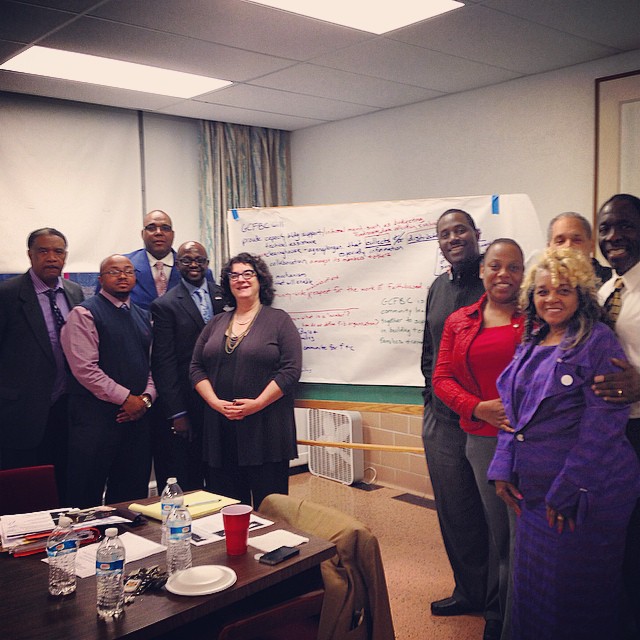On Martin Luther King Jr. Day, we’re reflecting on the important role faith-based organizations play in the communities around them. Often, religious leaders and their congregations are vanguards in grassroots efforts to protect basic human dignity and support the neediest among us. Dr. King’s work exemplifies this ethos and the impact it can have when people unite to act on it.
In Cleveland, we’re harnessing the power of faith-based organizations to provide valuable services to the community. Houses of worship are among the most reliable strands in the social safety net, housing food pantries, clothing banks and other neighborhood resources. By helping these institutions collaborate, communicate and coordinate as a network, we can amplify their ability to serve the community. That’s the premise behind a three-year pilot project of the Northeast Ohio Faith-Based Collaborative, which has formed a sharing structure currently comprising six area churches designated as satellites:
- Emmanuel Baptist Church, Central/Fairfax area
- Paul AME Church, Bellaire-Puritas
- Zion Hill Missionary Baptist Church, Buckeye/Mount Pleasant
- Southeast Seventh Day Adventist Church, Lee-Harvard
- Community of Faith Assembly, Slavic Village
- God’s Tabernacle of Faith Church, Warrensville Heights
Each satellite in the Northeast Ohio Faith-Based Collaborative is developing a network of both faith-based and secular nonprofit organizations. Their goal is twofold: to create a web of easy-to-find centers for information on community services and support, and to bring outside information and support to the members of their houses of worship.
Last year, the Cleveland Foundation has supported the Northeast Ohio Faith-Based Collaborative with a one-time $450,000 grant funding three components of the project: the satellites’ summer programs for youth, which focus on literacy, arts and crafts, health and physical education, leadership skills and more; various year-round programs; and building internal capacity. Each satellite submitted a proposal for the funds and they will be able to apply for more funding to keep the program going when the pilot phase ends.
The satellites in the Northeast Ohio Faith-Based Collaborative envision the network expanding beyond churches to include synagogues and other faith-based institutions in the future. Meanwhile, charter members continue to serve their surrounding communities, now as partners rather than silos.
This Martin Luther King Day, you can reflect too. How have faith-based organizations positively impacted your community?
You can learn more about the Northeast Ohio Faith-Based Collaborative and our support for human services by visiting our Cleveland Yearbook: http://clevelandyearbook.com/human-services/



